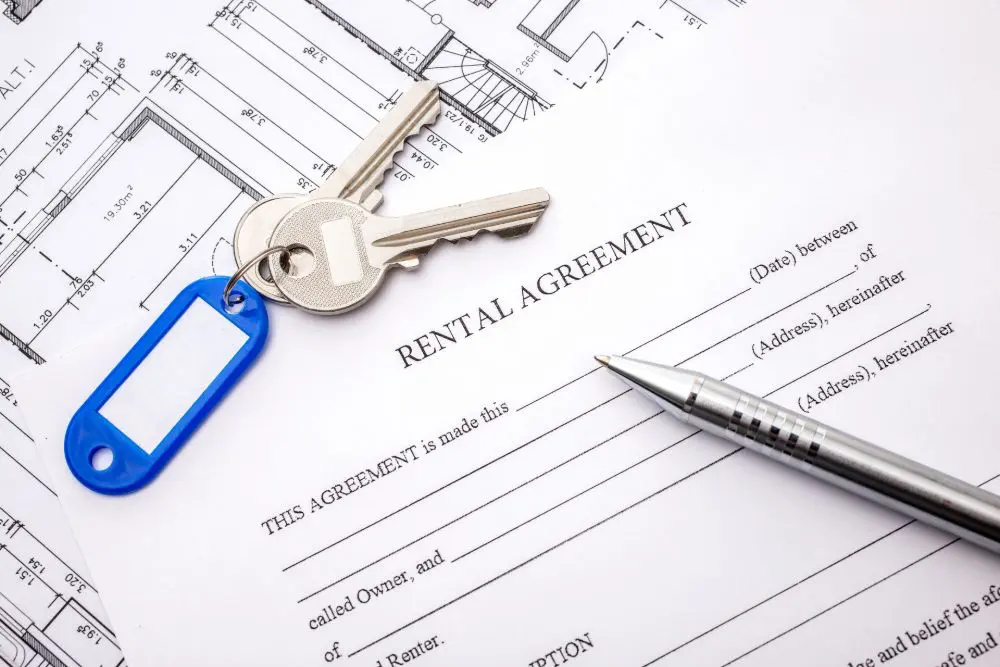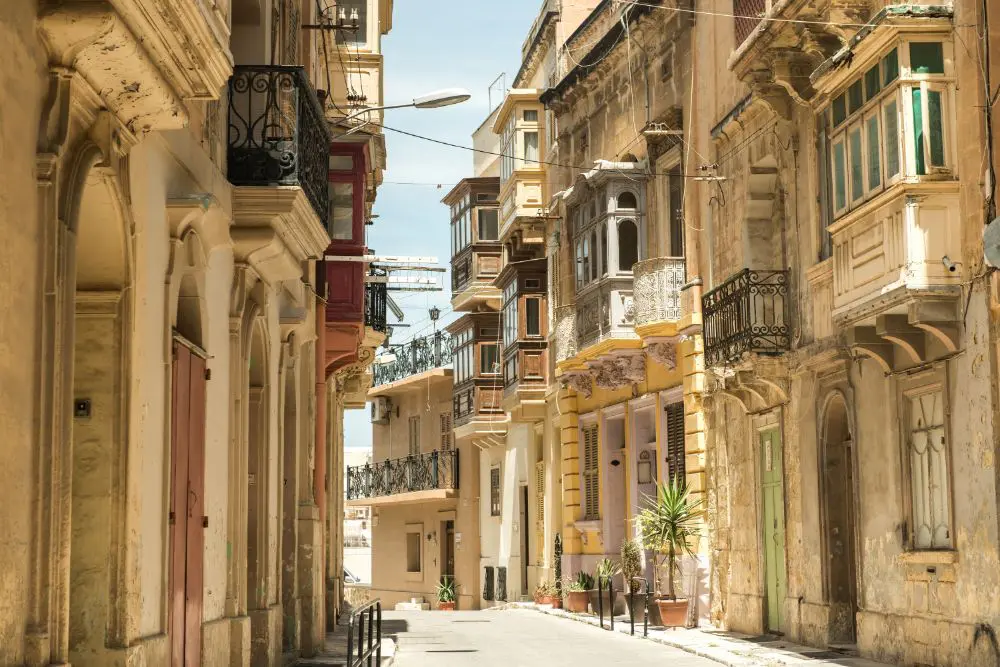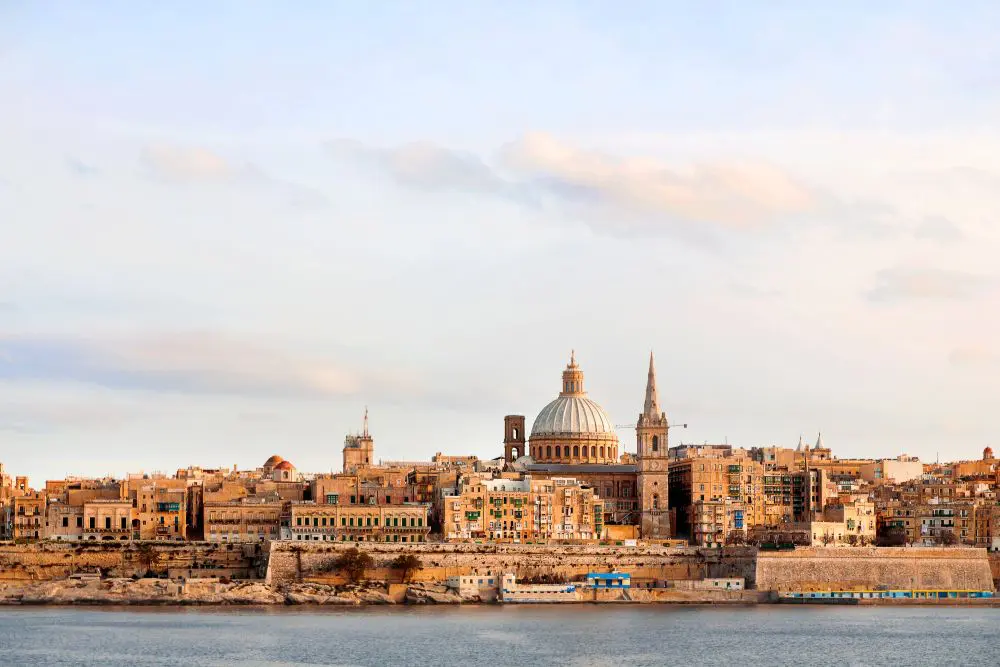If you have been thinking about relocating and are seeking to set up home in the Mediterranean, Malta must be one of the best European gems worthy of your consideration. The island’s mild winters radiating with long hours of glorious sunshine and the sizzling summers cooled by crystal clear waters, are one of the great reasons to seriously consider relocating to Malta. Malta’s strategic position in the heart of the Mediterranean, its rich culture, the low crime rate, a strong economy and an advantageous tax system, are just some of the reasons why relocating or retiring in Malta is the best choice you can make.
Contents
- Why do people relocate to Malta?
- Things you must consider when relocating to Malta
- Renting property in Malta
- Buying property in Malta
- What you should know when taking up a property in Malta
- Residency and citizenship in Malta
- Selling your property
- Useful Links
Why do people relocate to Malta?
Malta offers a welcoming environment, and throughout its chequered history has embraced people of diverse nationalities, and many have been captured by the charm it has to offer. Malta’s safe environment makes it the right setting for eventual retirement, in a country that has made remarkable progress and yet retained its identity, with its quaint and authentic villages. Malta’s tax system coupled with the ever-increasing job opportunities make it a great choice for anyone considering the next important step in their lives.
Any move of this sort entails careful consideration, and this is where this guide steps in to help with any questions you might have. If you are considering moving to Malta, it is normal to be thinking about the costs and procedures required. You would also be considering the type of residency status needed, while factoring in the status that a partner or spouse would be conferred, once residency is taken up in Malta.
To obtain residency in Malta
Malta offers a vast range of visas and residence permits, tailored to suit the needs of every applicant, depending on whether one is and EU-Citizen, in which case, applying for Malta’s Residence Programme, is the most chosen option. It is important to note that any residency application is not to be submitted without the advice of an Authorised Registered Mandatory. An EU citizen would be able to apply for programmes that are only available to EU/EEA/Swiss passport holders and it is generally quite easy to obtain the documents required.
To obtain citizenship in the European Union
Maltese citizenship comes with citizenship in the EU, and investment in Malta’s citizenship means you have the rest of Europe at your doorstep. The Maltese Government embarked on a programme in 2013 offering not only residency and investment in Malta, but also the opportunity of citizenship in the EU. Expatriates willing to invest in Malta’s Citizenship through the Investment Program must be willing to invest in government funds to the amount of €500,000 as well as invest in real estate. Further details on this scheme can be found in a separate guide.
Relocate to Malta to benefit from Malta’s advantageous tax system
Many choose to relocate or retire to Malta because of the island’s life style, its tax system and to automatically attain European Citizenship. At present, both men and women retire at the age of 62 if born between 1952 and 1955. If you were born between 1956 to 1958, then the retirement age is 63. Those born between the years 1959 and 1961 retire at age 64, however those born the 1st January 1962 reach retirement age at 65.

How The Maltese Tax System Benefits You
If you are relocating to Malta, you need to register for a tax identification number which is available from the Government of Malta Service website. This number serves as a means of identification when filing income tax returns. If you register your company in Malta, you also need to acquire a tax identification number.
Income Tax in Malta
The Maltese tax system is split into various levels to benefit the tax payer. You may apply to pay tax rates as a single person, as a married couple or for parental tax rates. The top tax rate is that of 35% of your income or earnings. A domiciled resident in Malta pays income tax on income accumulated worldwide, while a non-domiciled resident only pays tax on income remitted to Malta.
Income Tax Rates for Single Individuals
€0 – €9,100 at 0% with no deduction
€9,101 – €14,500 at 15% with a €1,365 deduction
€14,501 – €19,500 at 25% with a €2,815 deduction
€19,501 – €60,000 at 25% with a €2,725 deduction
€60,001 and over at 35% with a €8,725 deduction
Income Tax Rates for Married Individuals
€0 – €12,700 at 0% with no deduction
€12,701 – €21,200 at 15% with a €1,905 deduction
€21,201 – €28,700 at 25% with a €4,025 deduction
€28,701 – €60,000 at 25% with a €3,905 deduction
€60,001 and over at 35% with a €9,905 deduction
Income Tax Rates for Parents
€0 – €10,500 at 0% with no deduction
€10,501 – €15,800 at 15% with a €1,575 deduction
€15,801 – €21,200 at 25% with a €3,155 deduction
€21,201 – €60,000 at 25% with a €3,050 deduction
€60,001 and over at 35% with a €9,050 deduction
What you need to know about Income Tax if you are a new Maltese resident
Foreigners eligible for tax residency in Malta only get to pay the low rate of 15% on income sourced in Malta. Furthermore, there is no tax on inheritance, wealth or gifts. However, there is the usual 5% stamp duty applicable when immovable property is transferred as part of an estate. Should a partner pass away, the surviving spouse only pays duty on half the value of their marital home. In the case that you sell property you have inherited, you usually only pay 12% on gains realised since inheritance, rather than 8% of the property’s entire value.
To set up business in Malta
Setting up business in Malta is definitely an attractive prospect, with security and attractive prices and the absence of business-stifling regulations considered as feathers in the cap for the business investor. Business investors can enjoy low taxes, a stable economy, low crime rates and affordable housing. It is advisable to take legal advice to ensure that the setting up of your business is in line with local legislation.
Business in Malta and VAT – (Value Added Tax) – Malta’s Sales Taxation System
Almost all goods sold and services rendered in Malta carry a 18% VAT sales tax, except if these happen to be purchased by licensed hotels and caterers, which pay VAT at 7%. Electricity, baked goods, newspapers magazines, books and electronic publications are all vatable at 5%. The rate for medical supplies, in-home care and items required by people with disabilities are also taxed at 5%.
If a business generates a turnover above €20,000, it is advisable to check with the VAT department what rate should be charged for any goods or services rendered. You will need to have a VAT number to be in line with the law.
To retire in Malta
Those wishing to retire peacefully in a country where all the major services one requires are a stone’s throw away, can apply for the Malta Retirement Programme. Applicants seeking to retire in Malta must be nationals of an EU member state (excluding Malta), Swiss or nationals from Iceland, Norway or Liechtenstein.
To be able to retire in Malta, one must purchase or rent a qualifying property, at a cost of a minimum of €220,000 if situated in Gozo and the South of Malta, or a minimum of €275,000 if located in the rest of Malta. Rented property must be valued at €8,750 per annum for properties situated in Gozo or the South of Malta or a minimum of €9,600 annually for the rest of Malta.
Additionally, applicants must produce documents that (i) show evidence of a pension which must be received in Malta and which constitutes at least 75% of the beneficiary’s chargeable income; (ii) show that the applicant is a resident in Malta for at least 90 days a year, as averaged over a period of 5 years and must not reside in any other jurisdiction in excess of 183 days per calendar year; (iii) the applicant must not be domiciled in Malta and must not intend to establish his domicile in Malta within 5 years from the date of the application for the special tax status, (iv) must be in possession of a valid document of travel and have himself and his dependents covered for all risks in the entire European Union region. The Malta Retirement Programme requires that applicants are not domiciled in Malta and do not intend to establish residency in Malta within five years from the date of application.

The tax benefits derived from the Malta Retirement Programme
The Malta Retirement Programme allows recipients the favourable tax rate of 15% on any income that hails from overseas (subject to a minimum tax payment of €7500 per annum and an additional €500 per dependent) when this is received in Malta by both the beneficiary as well as their dependents. One also has the option of claiming relief of double taxation. Any additional source of income which is not covered by the programme, including income derived from Malta or any other foreign income which is not subject to tax in terms of these rules, will be subject to tax at a flat rate of 35%.
Applicants may not be beneficiaries under the High Net Worth Individual Programme, The Global Residence Programme, the Malta Residence Programme, the United Nations Programme, the Qualifying Employment in Innovation and Creativity (Personal Tax) Programme or the Highly Qualified Persons Programme. An application fee of €2,500 applies.
What you need to know about Health Insurance if you are retiring in Malta
If you satisfy the age criteria, are in receipt of a state pension from your European country of origin and have a residence permit to stay in Malta, you are eligible to receive free healthcare in Malta. Usually, you are able to receive free healthcare should you need to return to your home country, but there are a few exceptions with countries such as Croatia, Italy and the United Kingdom. For countries like the United Kingdom, British expatriates benefit from a special Reciprocal Health Agreement negotiated between Malta and the UK.
Relocate to Malta to enjoy the Mediterranean lifestyle
When searching for a property in Malta, one is often spoilt for choice, despite the fact that there is only about 50km from one end of the island to the other. This is where Frank Salt is ready to provide you with all the insights and options you require. With Malta’s economy steadily improving in the past years, having your private gem tucked away in the heart of one of Malta’s quaint villages or the lively seafronts, has never been so appealing.
Relocate to Malta to invest in Malta’s property market
Different localities in Malta have different charms to offer, and the choice is wide and varied, ranging from rural farmhouses, to fully furnished and ultra-modern apartments. The choice of locality and the type of property affects the price tag, with certain areas and certain types of properties requiring a larger investment.
Things you must consider when relocating to Malta
Cost of living in Malta
Food expenses can cost around €250 a month, but this is highly dependent on your choices. Local products and brands will cost less than imported and packaged items. Maltese bread, referred to locally as the ‘hobza tal-Malti’ or loaf of fresh white bread could cost around €1 while a carton of milk costs around; €0.95. Buying a 1.5l bottle of water could cost €0.83. Basic utilities usually add up to around €80 a month. Find out more.

Jobs and employment
If you are a EU citizen, you do not need a visa to work in Malta, but should apply to obtain an Identity Card after 3 months of being in Malta or when commencing work. Should you happen to have a Maltese family member, you may be eligible to apply for citizenship. As the situation stands at the moment, a British national is still able to live and work in Malta. Non-EU citizens should apply for a tourist visa (applicable for 90 days). To be able to work in Malta you will need a job offer, in the form of a letter from your prospective employer.
Residence Card
EU nationals as well as third-country nationals intending to live in Malta are issued with a residence card that reflects their right to live and work in Malta. Being in possession of a residence card means that you are authorised to reside in Malta legally, and allows you to travel freely without the need for a visa. Detailed information on how to acquire a residence card is found here.
Health, hospitals and health insurance in Malta
If you are an EU national living and working in Malta, you are eligible to make use of the free national health service, while EU citizens can make use of the European Health Insurance Card (EHIC). If you are a Third Country National, you may also be entitled to free public health care, but should still have private health insurance, as this is usually a requirement when presenting an application to work in Malta.
Transport In Malta
Towns like Sliema, Birkirkara,and Mosta are surrounded by shops, restaurants and entertainment hubs, and offer easily accessible public transport service. A one-way bus ticket costs between €1.50 and €3.00 (dependant on time of use). To save money, you should consider a monthly bus pass (€39) or unlimited 7-day ticket for €21 (and €15 for children).
Most locals still depend on their own personal vehicles, despite the ever-growing traffic jams. Some are opting for alternative forms of transport, such as motorcycles, public transport, e-scooters or bicycles.
Schools and Education in Malta
Educational institutions in Malta have established links with international schools and parents are spoilt for choice when considering the best options for their children. Generally, the Maltese curriculum mirrors the British educational system and most schools are now multi-lingual.
Schools in Malta can be categorised in three: state schools, Church-run schools as well as private schools, almost all of which run an international programme. In state-schools, the dominant language used is Maltese, however English is commonly used. The use of English usually predominates in Church schools and private schools, although within the former, some lessons are still held in Maltese to promote a bilingual context. There are a number of popular private schools in Malta, some of which are international and offer the IB Programme.
Importation of pets
Pets being brought to Malta should have a 15 digit microchip and must be identified prior to being given rabies vaccination. This vaccination can be given at the age of 12 weeks and pets can travel after 21 dates from the vaccination have elapsed. In addition, dogs must receive deworming treatment between 24 -120 hours before entering Malta. Pets must carry a valid EU passport and an online pre-notification must be submitted.

Running out of things to do is not an issue in Malta. Travelling around the island can be quite easy (unless you opt for traffic peak hours). Activities for children include a popular interactive science centre, while older groups can try out an escape room challenge. During Summer, you can visit the beach or a number of lidos dotting the Maltese coast.
Sports facilities and niche interests
Being an island home, Malta offers a varied and attractive selection for the sports enthusiast. Given its enticing and alluring location in the Mediterranean sea, the Maltese islands offer the scuba diver a myriad of underwater caves, reefs and mesmerising wrecks sure to interest anyone ranging from beginner, to the most experienced divers. This is a sport that can be practiced safely almost all year round given the mild winters experienced in Malta. Water sports such as kayaking and windsurfing are also very popular, particularly during the summer months. One can also try out paragliding, canoeing, yachting, sailing and water polo.
Renting property in Malta
Being an island home, Malta offers a varied and attractive selection for the sports enthusiast. Given its enticing and alluring location in the Mediterranean sea, the Maltese islands offer the scuba diver a myriad of underwater caves, reefs and mesmerising wrecks sure to interest anyone ranging from beginner, to the most experienced divers. This is a sport that can be practiced safely almost all year round given the mild winters experienced in Malta. Water sports such as kayaking and windsurfing are also very popular, particularly during the summer months. One can also try out paragliding, canoeing, yachting, sailing and water polo.

The rental process
Long term rentals in Malta are very popular. The number of bedrooms required and the location of the property have a significant impact on the price. Involving a respectable and well-established agency like Frank Salt Real Estate will put you on the right track to help you negotiate a deal that is favourable to you as lessor.
The favoured suburbs in Malta and long-term rentals
Sliema and St Julian’s are two coastal towns that are always in demand, and guarantee a very lively environment, particularly during the summer months. The most common and available properties in these areas are usually apartments. Rental fees range in the region of around €1,000 per month and even up to double that amount if the property is a penthouse or has multiple bedrooms.
If you are after a quieter area, you can opt for the North of Malta, in the picturesque and much sought after village of Mellieha and its surrounding villages such as Qawra, Bugibba and St Paul’s Bay. Mellieha, for example, offers property that range somewhere between €700 and €1,300 per month, dependant on the size and the amenities offered. In this area, you can expect to find anything ranging from detached bungalows, detached or semi-detached maisonettes, penthouses and apartments in both traditional, as well as modern buildings.
Finding the right property can be a headache, but Frank Salt Real Estate can help change that. Finding one or two bedroomed properties that fall beneath the €650 figure per month is an easier feat in Malta’s central, western and southern regions, where one-bedroom prices start at €500 per month. In Valletta, properties are likely to be found for €1,000 monthly. Luxury apartments could even go for around €2000 monthly, while seaside villas in the sought-after areas, could be offered at up to €4000 monthly.
Other renting expenses you need to budget for
When considering long term rentals in Malta, make sure to budget for an additional one month’s rent that is required by the landlord and held as a security deposit to cater for any unpaid bills or damage to the property. Additionally, if you are making use of the services of a real estate agency, it is the norm to pay them half a month’s rent including VAT (Value Added Tax). Other expenses are related to utility bills, dependent on the consumption, usually in the range of €50-75 monthly.
What you must know in order to satisfy Malta’s Residency Requirements with a Rental Property
If you are considering a residency scheme, it is good to know that there is a specific minimum value to buy real estate in Malta, or if you are opting to rent your home. The citizenship-by-investment scheme would see you pay rent in the region of at least €16,000 per annum in addition to signing a five-year lease contract. An alternative scheme, under the investor visa programme requires a rental commitment of minimum €12,000 per year or €10,000 if the property is in the south of Malta or in Gozo.
Buying Property in Malta
The process for buying property in Malta
Frank Salt Real Estate has the best and latest listings of properties for sale in Malta, and is best placed to offer professional advice and to facilitate the process leading to the promise of sale (a preliminary agreement which is signed between the purchaser and the vendor). This agreement, which in Maltese is referred to as ‘konvenju’ acts as security for both parties to buy or sell the designated property under the respective terms and conditions that are binding to both parties.
Upon signing the preliminary agreement, 10% of the total value of the property is held by the agent or notary public as a deposit which would be forfeited in the vendor’s favour, in case the purchaser fails to complete the final deed of transfer for no reason deemed legal. The agreement remains valid for a minimum period of three months (the time-frame prescribed by law) or as agreed upon by both parties. During this time-frame, a Notary Public, who is engaged by the purchaser, conducts the necessary research to ensure good title as well as to provide sufficient time for the application of any required permits. Upon receipt of the relevant permit, and verification of clear title to the property, the buyer may proceed to sign the contract of sale with the deed of sale being drawn by the notary. The payment of the property and stamp duty, as well as additional legal expenses are settled once the sale is conducted. Entrusting the purchase of property under the expert guidance of Frank Salt Real Estate is a guarantee of a seamless and smooth process of purchasing your home in Malta.
Expenses related to the purchase of property in Malta
When purchasing a property in Malta some expenses need to be considered. The following taxes apply:
- 5% stamp duty
- 1% – 3% notarial fee
- €600 (approximate fee) for searches and registration
- €233 AIP permit fee might be also applicable
It is the property vendor who pays the agency fees (usually 5% of the cost of sale), while the purchaser bears the costs of the expenses cited above.
Malta’s booming industry has laid bare the fact that one is spoilt for choice when considering the sheer number of apartments for sale, with the option of buying an apartment that is either still on-plan or one that is ready finished.
Budget and taste are the two most significant underlying factors that determine which property in Malta best suits your needs. Very often, when looking for a first home, you are after something practical that will become home to you and your family and apartments and maisonettes make an excellent choice. The decision on whether to buy an apartment on-plan or finished depends on the time you have and how much you want the property to reflect your needs and tastes. A readily finished property will save you time and a good number of headaches, however if time is not an issue, buying on plan often carry better introductory prices, while also allowing you to make minor modifications.
Maisonettes (a property that is part of a larger building or property, yet has its own independent entrance from the street) are another excellent choice. Buying on-plan would allow you to make the modifications you want and add features to make it the perfect family home. Maisonettes can be duplex (split onto two floors) or solitary. Such properties would normally include ownership of its roof and airspace. Maisonettes often include a small back yard or even a garden.
A penthouse is essentially an apartment situated on the top- floor of a block. Usually, penthouses stand out from the rest for their finish and luxury furnishings and often include a terrace big enough for entertaining guess and that allows home-owners to make most of Malta’s all-round great weather and spectacular views.
Villas, Bungalows and Terraced Houses
A terraced house, usually split on two levels, has a front porch, a garden or courtyard, its own airspace and usually includes an underlying or side garage. Terraced houses are fairly more recent types of property than townhouses however are more rare. Such properties may feature carved stonework , marble flooring and wooden apertures.
Defined as being a large, luxury house located in its own grounds, a villa or bungalow could have been built as early as the 1960s or fairly recently. Villas are typically laid-out over two floors, while bungalows have one floor, and may be fully detached or semi-detached. With front or back gardens and usually surrounded by a patio, they typically include swimming pools and beautifully landscaped gardens, offering ample barbeque or decking areas and other luxurious features.
Period Houses (Houses of Character, Townhouses)
A House of Character is adorned and given distinct character as a result of the traditional architecture that gives it its name. It boasts of original features such as old stone, graced with stone arches and troughs, and coloured patterned tiles. Some dating back several hundred years, they can be converted to more contemporary standards to serve the modern family. Traditionally built to cater for large families, converted houses of character are not easy to find and are highly-sought after.
Townhouses offer a charming and structurally-sound property that may be another option shielded from the hectic lifestyle an urban town has to offer. Townhouses are converted to modern standards and typically offer a hallway and traditional features such as the Maltese ‘antiporta’ at the entrance, leading to a reception area or sitting room. Sleeping quarters are often found on a second floor and the building also comes with its own roof and airspace.

Localities in Malta
Divided into six main districts, Malta is the main island in an archipelago that combines, Malta, Gozo, Comino and Cominotto. Malta’s sister island Gozo, is accessible by ferry which runs a regular service all year round, and is smaller than Malta and less densely populated.
The Southern harbour district includes Valletta, Floriana, Paola, Birgu, Fgura, and Luqa. In 2018, Malta’s capital city, Valletta, founded by Grandmaster La Vallette in 1566, was named the Cultural Capital of Europe in the 2018, and has since seen much development, as well as the emergence of new bars and restaurants. The city also houses Malta’s Parliament, its law courts and several ministerial auberges. Property in Valletta is an absolute investment to have in this architectural and historical gem.
If walled cities are your thing, then you should also consider the old cities of Vittoriosa (Birgu), Senglea (Isla) and Cospicua (Bormla). These three cities, were in the centre of historical events, having been the home of Phoenicians and later of the Knights of St John. The palaces and Churches, forts and bastions pre-date those in Valletta and together, the three cities house around 10,000 residents. Holy days and festas organised here are highly renowned and property in these localities is well sought-after.
The Northern Harbour, which encompasses Sliema, Gzira, St Julian’s, Pieta’ and Birkirkara, is regarded as the smallest district out of the six, despite the fact that it houses the largest population of all. This region is the most urban and cosmopolitan, not only offering varied and distinct residences, but also being the hub for offices and businesses for local as well as international companies.
If you are after a more laid-back lifestyle, the Northern part of Malta has its own special appeal. Many sun-worshippers and beach-loving individuals would give anything to own property in the North where some of the island’s most beautiful sandy beaches offer it all. Places like Mellieha are highly sought after, because of the ever-popular Ghadira Bay that attracts thousands especially during the summer months. Offering a more laid-back lifestyle, this village offers a vast range of properties to choose from.
The sister island of Gozo offers a life that is certainly more peaceful than the life offered in Malta, and this is why it is a choice for many foreigners. With its considerably greener, pastoral scenic beauty, beaches and coves unspoilt by development, Gozo is certainly worth a visit when considering some of the best places to live in Malta.
What you should know when taking up property in Malta
If an application for Maltese citizenship through investment is made, one is required to purchase property that is worth at least €700,000 and purchase government bonds or securities worth €150,000. Malta’s government bonds have been placed at the top-end of the rating scale by international bond-rating agencies. These investments need to be held for a period of five years. Should you not wish to make that kind of investment by purchasing property, you can opt instead to rent a home for a minimum of €16,000 per year. You must also contribute the sum of €650,000 to Malta’s National Development and Social Fund.
The Maltese government does not automatically grant citizenship to anyone who is able to afford the fee. One must be at least 18 years old, have a clean police record and be of ‘fit and proper character’. An assessment of the wealth being used by the applicant is undertaken and the applicant must be certified as being in good health and free of any communicable diseases.
As a foreigner, you may purchase property in Malta, subject to the acquisition of an AIP (Acquisition of Immovable Property) Permit, should this be necessary. If you are an EU citizen (i) who has been in Malta for at least five continuous years, (ii) who intends to purchase property which is to serve as primary residence or (iii) who intends to purchase property for investment purposes, then you are NOT required to purchase properties in Special Designated Areas. If one of the spouses is an EU citizen, while the other is not, you are still exempted from having to acquire an AIP permit in so long as the property being purchased is to be used as your private residence.
If you are a citizen hailing from any EU country (this also includes Maltese citizens) and you have not resided in Malta for a minimum period of at least 5 years, you are still required to apply for the AIP permit Acquisition of Immovable Property Permit) at the Department for Inland Revenue. This permit is usually granted within 6/7 weeks’ time period.
If you are an EU national conducting business in Malta, you are exempted from the acquisition of the permit. As purchaser, you must make a declaration reflecting what your intentions for the acquisition of property are and make mention of this in the contract of purchase. The same applies when you buy the property for use as rental investment.
If you are a citizen of any European Union member states, and you have continuously resided in Malta for a minimum period of five years at any point in time prior to the date of the acquisition of the property, you will be eligible to acquire more additional immovable property without having to apply or obtain a permit.
On the other hand, if you are an EU citizen, who has NOT resided in Malta for the minimum period of at least five years, but intend to purchase a property for use as main residence and consequently will be taking up residence in Malta, you will also be exempted for requiring a permit. You are also exempt from the need to have a permit if you satisfy the criteria above and wish to purchase immovable property to conduct a business or supply a service.
When a property necessitates an AIP Permit – non-EU citizens
Citizens of non-EU country, require the AIP permit- (Acquisition of Immovable Property Permit) in order to be able to purchase immovable property.
In cases, where the purchase of a property requires an AIP permit, the property in question should not be valued at less than €153,019 where the property concerned is an apartment or maisonette. Villas, townhouses and other forms of property should not be valued at less than €264,298. These values may be revised in due course.
The property purchased, should only be used as residence by the applicant and his family and in the eventual acquisition of a permit to rent this property, this condition will no longer apply.
In the case where an AIP permit is required, only one property in Malta and Gozo (except in special designated areas where one may purchase more than one property) may be purchased. The Ministry of Finance must grant permission to the applicant, for the purchase of a new property only after the first property has been sold. Usually, any applications for the acquisition of property are granted in so long as the first property has been sold.
If you are not a citizen of an EU member state, you may only be granted permission to purchase immovable property after being in possession of the relative AIP permit in accordance with Chapter 246 of the Laws of Malta. This is acquired from the Ministry of Finance, unless the property acquired so happens to be located in a Special Designated Area. In the case of properties purchased in such Special Designation Area, you will not be troubled by any form of rules or restrictions. Property located in Special Designated Areas may be purchased by EU and non-EU citizens alike, without the necessity for an AIP permit and therefore not subject to other conditions.47
Residency and Citizenship in Malta
Visas and Residence Permits for Residency in Malta
Malta offers a vast range of visas and residence permits, tailored to suit the needs of every applicant, depending on whether one is and EU-Citizen, in which case, applying for Malta’s Residence Programme, is the most chosen option. It is important to note that any residency application is not to be submitted without the advice of an Authorised Registered Mandatory. An EU citizen would be able to apply for programmes that are only available to EU/EEA/Swiss passport holders and it is generally quite easy to obtain the documents required.
Citizenship in the EU
Maltese citizenship comes with citizenship in the EU, and investment in Malta’s citizenship means you have the rest of Europe at your doorstep. The Maltese Government embarked on a programme in 2013 offering not only residency and investment in Malta, but also the opportunity of citizenship in the EU. Expatriates willing to invest in Malta’s Citizenship through the Investment Program must be willing to invest in government funds to the amount of €500,000 as well as invest in real estate. This scheme has now expired as it was valid until the end of 2021.
Residency in Malta: Ordinary Residency and Permanent Residency
Residency in Malta falls under to two categories: that of Ordinary Residency, which is applicable to an EU traveller coming to Malta and renewable every five years, or that of Permanent Residency which is offered to any traveller, independent of their country of origin which is renewable on a yearly basis. It is highly advisable to take legal advice to ascertain which application is best suited to anyone seeking residency in Malta. A residency permit application is obtained by submitting an application to the Department for Citizenship and Expatriates Affairs in Valletta as detailed in the address below:
The Department for Citizenship and Expatriates Affairs
Identity Malta
Evans Building
St Elmo’s Square
Valletta
Tel: 00356 2590 4600
Email: [email protected]
Malta’s Residence Programme
Malta’s Residence Programme is the most common option open to expatriates seeking to make Malta their home. This residence programme is only open to people coming from the European Union, the European Economic Area and Swiss nationals. In order to qualify for the Residence Programme, one must declare fluency in either of Malta’s two official languages, English or Maltese, in addition to paying a one-time registration fee of €6000, which fee is reduced to €5500 if the rented or purchased property is located in the south of Malta or located in Gozo. Furthermore one must EITHER purchase a home for €275,000 or €220,000 if this property is bought in the south or in Gozo; OR pay an annual rent of €9600 (or €8750 if property is rented in the south or in Gozo) and show proof of financial self-sufficiency in addition to refraining from spending more than 183 days in any other country.
Third Country Nationals
Third Country Nationals (non-EU/EEA/Swiss nationals) may apply for Malta’s Global Residence Programme which necessitates the same rules for the purchase or rental of property in Malta as those stated above as in the Residence Programme. This programme does not necessitate special requirements for minimum presence or residence in Malta per year but must entail visiting Malta at least once a year. Favourable tax rates are set at a flat rate of 15% and any income generated in Malta is based on Malta’s set tax rates. There is a minimum tax bill of €15000 on this income.
Selling your property
Selling your property in Malta is a relatively easy achievement given the demand for property of quality. Involving an estate agent to give an evaluation of your property ensures that it will be pitched at the right price and one that is advantageous to you as seller, while being attractive to the buyer. Professional estate agents such as Frank Salt Real Estate will provide all the helpful tips and guide you through the process of getting the best price for your property.
Whichever way you look at it, relocating to Malta and establishing new roots by buying or renting the property of your dreams, is and will remain an attractive option for most. Whether you’re looking at retiring or starting a business in Malta, the island offers the best scenarios and limitless prospects. With 50 years’ experience, a myriad of local connections and a reputation for honesty and integrity, Frank Salt Real Estate can guide you through the whole process so that you can start enjoying the sea, the sun and Malta’s economic prosperity in no time.




 Back to Blogs
Back to Blogs




Social life and Entertainment